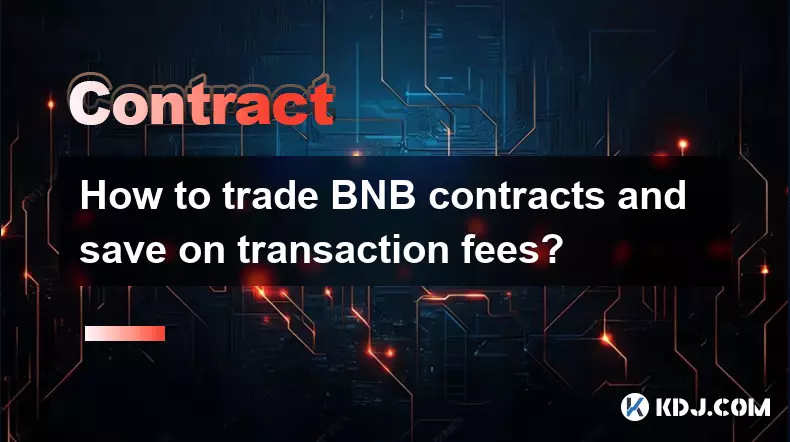-
 bitcoin
bitcoin $87959.907984 USD
1.34% -
 ethereum
ethereum $2920.497338 USD
3.04% -
 tether
tether $0.999775 USD
0.00% -
 xrp
xrp $2.237324 USD
8.12% -
 bnb
bnb $860.243768 USD
0.90% -
 solana
solana $138.089498 USD
5.43% -
 usd-coin
usd-coin $0.999807 USD
0.01% -
 tron
tron $0.272801 USD
-1.53% -
 dogecoin
dogecoin $0.150904 USD
2.96% -
 cardano
cardano $0.421635 USD
1.97% -
 hyperliquid
hyperliquid $32.152445 USD
2.23% -
 bitcoin-cash
bitcoin-cash $533.301069 USD
-1.94% -
 chainlink
chainlink $12.953417 USD
2.68% -
 unus-sed-leo
unus-sed-leo $9.535951 USD
0.73% -
 zcash
zcash $521.483386 USD
-2.87%
The difference between Coinbase options and contracts
Coinbase Options and Contracts offer distinct features, with Options providing limited risk and flexibility in expiration dates, while Contracts enable leveraged trading and perpetual position holding.
Nov 13, 2024 at 10:18 pm

In the realm of cryptocurrency trading, Coinbase stands as a prominent platform offering diverse options for market participants. Among its suite of services are options and contracts, both of which provide unique ways to speculate on price movements and manage risk. However, understanding the nuances between these two instruments is crucial for informed decision-making.
What Are Coinbase Options?- Definition: Coinbase options are derivative contracts that grant the holder the right, but not the obligation, to buy (call option) or sell (put option) a specific cryptocurrency at a predetermined price (strike price) on or before a specified expiration date. The buyer of an option pays a premium to the seller in exchange for this right.
- Key Characteristics:
- Flexibility: Options offer flexibility by allowing the holder to capitalize on potential price movements without the commitment to buy or sell the underlying asset.
- Limited Risk: The maximum loss for an option buyer is limited to the premium paid, providing a defined risk profile.
- Time Decay: The value of an option decays over time as the expiration date approaches.
- Uses of Coinbase Options:
- Directional Trading: Traders can speculate on price increases or decreases by purchasing call or put options, respectively.
- Hedging: Options can be used to hedge against potential price risks in existing cryptocurrency holdings.
- Income Generation: Option sellers can collect premiums from buyers, potentially generating income from market volatility.
- Definition: Coinbase contracts are perpetual futures contracts that allow traders to speculate on the future price of a cryptocurrency without an expiration date. These contracts are typically referred to as futures, or perpetual swaps.
- Key Characteristics:
- Leverage: Contracts allow for trading with leverage, enabling traders to amplify their potential gains and losses.
- No Expiration: Futures contracts do not have a defined expiration date, allowing traders to hold positions indefinitely.
- Mark-to-Market: Contracts are continuously adjusted to the current market value, resulting in unrealized gains or losses that are settled daily.
- Uses of Coinbase Contracts:
- Trading Long or Short: Traders can take long (buy) or short (sell) positions on a cryptocurrency, speculating on its future price.
- Hedging: Futures contracts can be used to hedge against price fluctuations in underlying cryptocurrency holdings.
- Speculation: Traders can speculate on future price movements without the need for a specific expiration date.
To further illustrate the differences between Coinbase options and contracts, a comparative analysis is provided:
- Structure: Options are discrete contracts with a fixed expiration date, while contracts are perpetual futures that do not expire.
- Obligation: Option holders have the right, but not the obligation, to buy or sell the underlying cryptocurrency. Contract holders have the obligation to settle the contract at its mark-to-market value daily.
- Risk: The maximum loss for an option buyer is limited to the premium paid. The risk for contract traders is potentially unlimited due to the use of leverage and continuous market-to-market settlement.
- Capital Efficiency: Options require a lower upfront capital investment compared to contracts, as traders only pay the premium. Contracts require traders to maintain a sufficient account balance to cover potential losses.
- Flexibility: Options offer flexibility as they allow traders to choose an expiration date that aligns with their trading strategy. Contracts provide flexibility in terms of holding positions indefinitely.
- Suitability: Options are more suitable for traders with a defined time frame for their trades and a limited risk tolerance. Contracts are more appropriate for experienced traders who are comfortable with the use of leverage and potential unlimited losses.
Disclaimer:info@kdj.com
The information provided is not trading advice. kdj.com does not assume any responsibility for any investments made based on the information provided in this article. Cryptocurrencies are highly volatile and it is highly recommended that you invest with caution after thorough research!
If you believe that the content used on this website infringes your copyright, please contact us immediately (info@kdj.com) and we will delete it promptly.
- Bitcoin Under Pressure: Galaxy Analyst Eyes $58K Amidst ETF Outflows and Weakening Debasement Narrative
- 2026-02-03 19:00:02
- Crypto Market Stabilizes as Bitcoin Rebounds; Key Factors Driving the Recovery
- 2026-02-03 19:10:02
- ETH Rebound Ignites L3 Architecture Race: Liquid Chain Eyes the Fragmentation Fix
- 2026-02-03 19:10:02
- Down Under's Digital Shift: Australian Corporate Treasuries Eye Bitcoin Amidst Global Crypto Waves
- 2026-02-03 19:20:01
- Navigating Inflation: Real Assets and Evolving Investment Strategies in Today's Economy
- 2026-02-03 19:20:01
- BlockDAG's $452M Presale Nears End: The $0.0005 Upside Entry Opportunity for 2026
- 2026-02-03 15:40:02
Related knowledge

How to close a crypto contract position manually or automatically?
Feb 01,2026 at 11:19pm
Manual Position Closure Process1. Log into the trading platform where the contract is active and navigate to the 'Positions' or 'Open Orders' tab. 2. ...

How to understand the impact of Bitcoin ETFs on crypto contracts?
Feb 01,2026 at 04:19pm
Bitcoin ETFs and Market Liquidity1. Bitcoin ETFs introduce institutional capital directly into the spot market, increasing order book depth and reduci...

How to trade DeFi contracts during the current liquidity surge?
Feb 01,2026 at 07:00am
Understanding Liquidity Dynamics in DeFi Protocols1. Liquidity surges in DeFi are often triggered by coordinated capital inflows from yield farming in...

How to use social trading to copy crypto contract experts?
Feb 02,2026 at 07:40am
Understanding Social Trading Platforms1. Social trading platforms integrate real-time market data with user interaction features, enabling traders to ...

How to trade BNB contracts and save on transaction fees?
Feb 03,2026 at 12:39am
Understanding BNB Contract Trading Mechanics1. BNB contracts are derivative instruments traded on Binance Futures, allowing users to gain leveraged ex...

How to build a consistent crypto contract trading plan for 2026?
Feb 02,2026 at 10:59pm
Defining Contract Specifications1. Selecting the underlying asset requires evaluating liquidity depth, historical volatility, and exchange support acr...

How to close a crypto contract position manually or automatically?
Feb 01,2026 at 11:19pm
Manual Position Closure Process1. Log into the trading platform where the contract is active and navigate to the 'Positions' or 'Open Orders' tab. 2. ...

How to understand the impact of Bitcoin ETFs on crypto contracts?
Feb 01,2026 at 04:19pm
Bitcoin ETFs and Market Liquidity1. Bitcoin ETFs introduce institutional capital directly into the spot market, increasing order book depth and reduci...

How to trade DeFi contracts during the current liquidity surge?
Feb 01,2026 at 07:00am
Understanding Liquidity Dynamics in DeFi Protocols1. Liquidity surges in DeFi are often triggered by coordinated capital inflows from yield farming in...

How to use social trading to copy crypto contract experts?
Feb 02,2026 at 07:40am
Understanding Social Trading Platforms1. Social trading platforms integrate real-time market data with user interaction features, enabling traders to ...

How to trade BNB contracts and save on transaction fees?
Feb 03,2026 at 12:39am
Understanding BNB Contract Trading Mechanics1. BNB contracts are derivative instruments traded on Binance Futures, allowing users to gain leveraged ex...

How to build a consistent crypto contract trading plan for 2026?
Feb 02,2026 at 10:59pm
Defining Contract Specifications1. Selecting the underlying asset requires evaluating liquidity depth, historical volatility, and exchange support acr...
See all articles

























![Discontinuum by: ArchitechGD 100% (1 coin) (Mobile) Geometry Dash [2.2] Discontinuum by: ArchitechGD 100% (1 coin) (Mobile) Geometry Dash [2.2]](/uploads/2026/02/03/cryptocurrencies-news/videos/origin_69814d99e6b61_image_500_375.webp)
















































